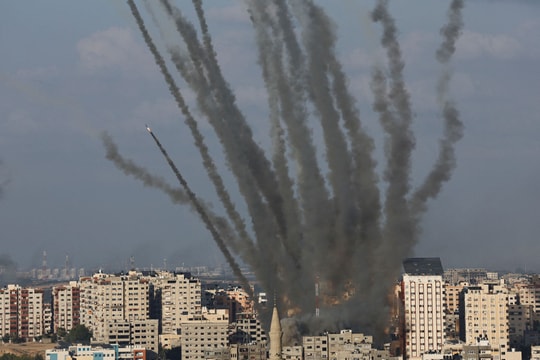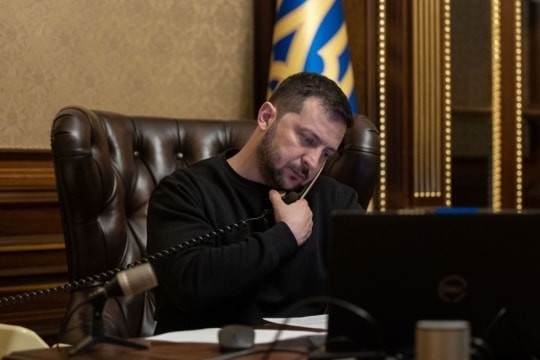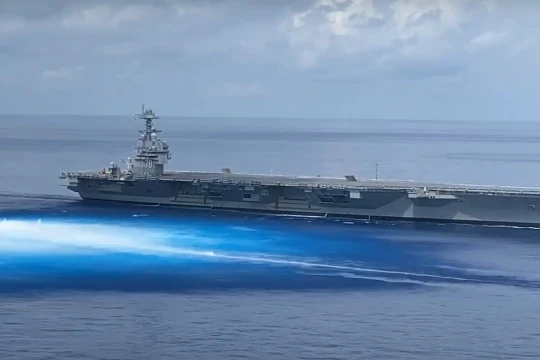How could the Gaza siege escalate the Israel-Hezbollah conflict?
(Baonghean.vn) - According to DW, observers say that despite the ongoing narrow fighting near Lebanon, neither Hezbollah nor Israel wants to escalate the conflict. However, Israel's blockade of Gaza following Hamas attacks could quickly turn the situation around.
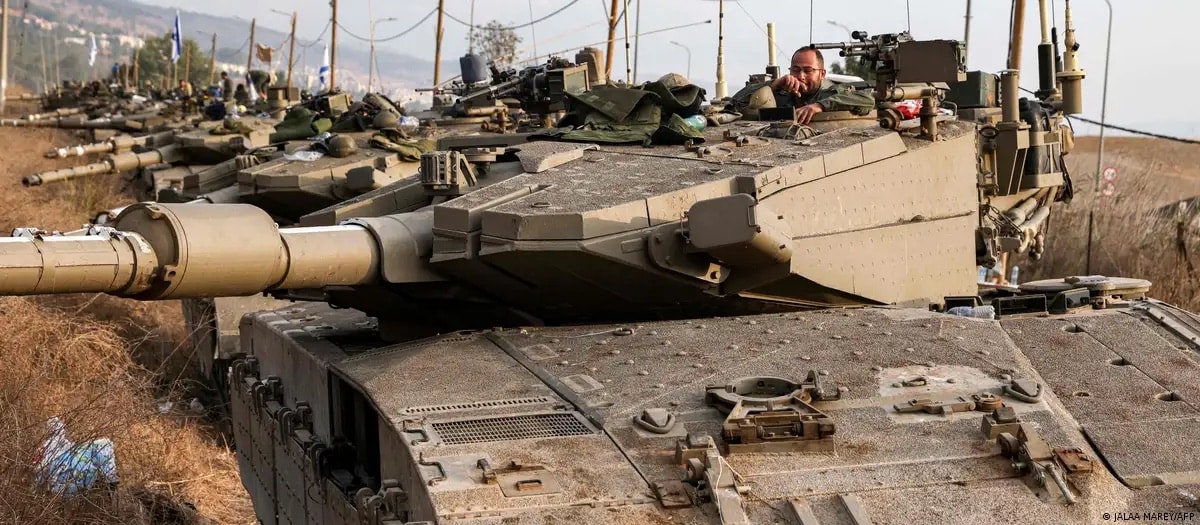
Hezbollah and its position in Lebanon
Highways leading from southern Lebanon to the capital Beirut were packed with cars even before fighting broke out between Israeli forces and the Iran-backed Hezbollah militant group near the Lebanon-Israel border on October 11.
“Thousands of people from the south have left the area out of fear,” Lynn Zovighian, managing director of The Zovighian Partnership, a privately owned social investment platform in Beirut, told DW on October 10.
“On the way to Beirut, we were surprised by the number of cars heading there. Seeing the long lines of cars in front of the gas stations reminded me of the scene during the fuel shortage crisis last year,” said Mariam Hoteit, a housewife and mother of five from the town of Shakra, just 7 km from the Israeli border.
Lebanon has been plunged into a series of crises, resulting in a total economic collapse, inflation reaching 250% and an interim government without a president. According to the non-governmental organization Human Rights Watch (HRW), nearly 80% of the Lebanese population lives below the poverty line.
Meanwhile, Hezbollah is divided into political and military groups. The military group has been listed as a terrorist group by the European Union, France, Kosovo and other governments. Hezbollah as a whole has been designated a terrorist organization by the United States, Germany, Israel and several other governments.
The group is deeply involved in Lebanon’s politics and people’s lives. In fact, Hezbollah still holds 12% of the seats in Lebanon’s parliament, and even after leaving the government after the 2022 elections, Hezbollah will maintain close ties with the ruling parties. It finances hospitals and operates its own banks with access to US dollars.
Given its political and military importance in Lebanon, it is only natural that the group's leadership is closely monitoring events in Israel and Gaza after Hamas - also an Iran-backed organization, considered a terrorist group by the EU, the US, Germany and other governments - launched a large-scale attack on Israel on October 7.
“Restrained engagement”
On October 8, Hezbollah launched a small-scale cross-border attack on the uninhabited Shebaa Farms area – whose sovereignty is disputed between Lebanon and Israel.
“This is a way to signal that they are present without triggering immediate retaliation from Israel,” said Heiko Wimmen, Lebanon project director at the conflict prevention NGO International Crisis Group.
“They are clearly demonstrating that they have the ability to attack if they want to,” Wimmen said, adding, “Hezbollah’s position is very clear. They are not interested in getting directly involved in this conflict, as long as there is no attack from Israel or something that could be considered crossing a red line.”
According to Wimmen, such a red line could be the forced entry of large numbers of Gazans into Egypt or the complete destruction of Hamas.
Meanwhile, Kelly Petillo, a Lebanon researcher at the European Council on Foreign Relations, commented that "the red line for Hezbollah may be when the levels of Israeli violence in Gaza become too intense by any of their definitions of intense."
“However, so far, I think we have remained within the bounds of a restrained engagement and not crossed the red line,” she added, based on her assessment of the rocket barrage Hezbollah fired toward Israel on October 10, the artillery fire in response by the Israel Defense Forces (IDF), as well as the growing tensions on the Israel-Syria border.
“Both sides retaliated in kind to each other's attacks, so it seems that both sides continue to avoid escalation,” Wimmen assessed.
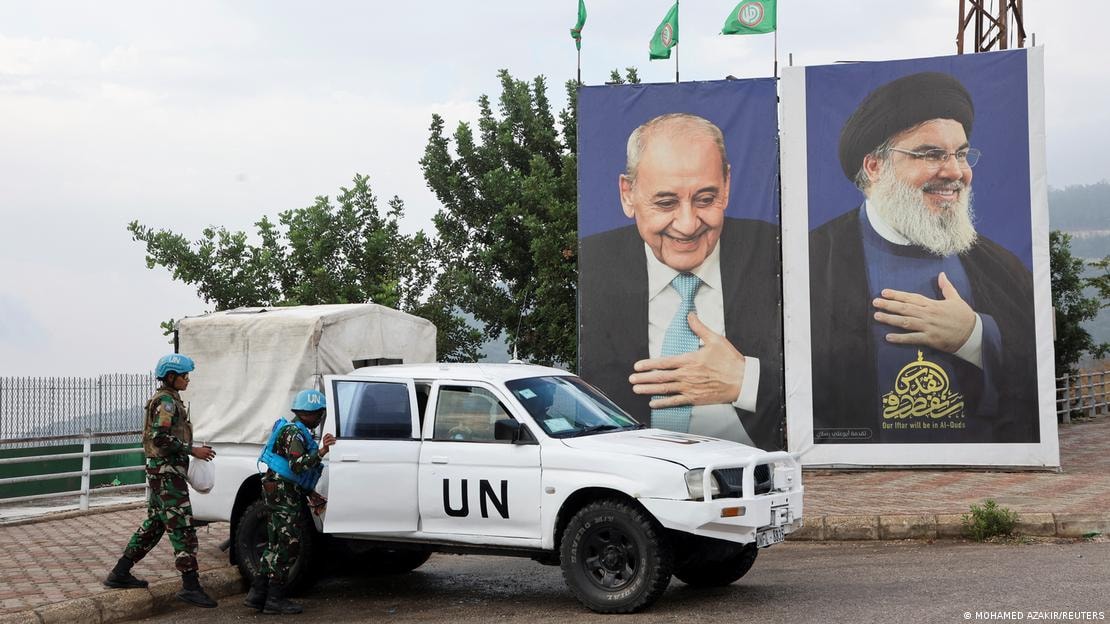
Escalation in the Middle East
An escalation with Hezbollah could draw in the group's allies Iran, Russia and Syria, potentially plunging the entire region into conflict. Meanwhile, the US has sent a naval strike group to the region to show support for its ally Israel.
“If the younger brother Hamas can carry out such an attack, then Israel may have to consider what the older brother Hezbollah can do,” Wimmen warned.
For example, Hamas fired 5,000 rockets at Israel over the weekend, but Hezbollah "five years ago had an arsenal of at least 150,000 rockets, so who knows how many they have now?", the expert said.
In particular, the number of precision-strike missiles in Hezbollah’s arsenal remains a mystery. These missiles can change trajectory just before reaching their target. “It is impossible for the defense system or anyone else to know which missiles are precision-strike missiles and which are conventional,” Wimmen said.
Nathan Brown, professor of political science and international affairs at George Washington University in the US and a fellow at the Hamburg Institute for Advanced Studies in Germany, told DW that, "Israel will not initiate hostilities, but if Hezbollah does, Israel may respond very strongly because it believes it is necessary for deterrence purposes, so there is still the possibility of escalation."
But there is also a “longer-term danger,” according to Brown: “If Israel begins to view Hezbollah, Hamas and Iran as a strategic threat, the risk of escalation increases.”
Meanwhile, Iran-backed groups and paramilitary forces have been preparing for such a shift in perception.
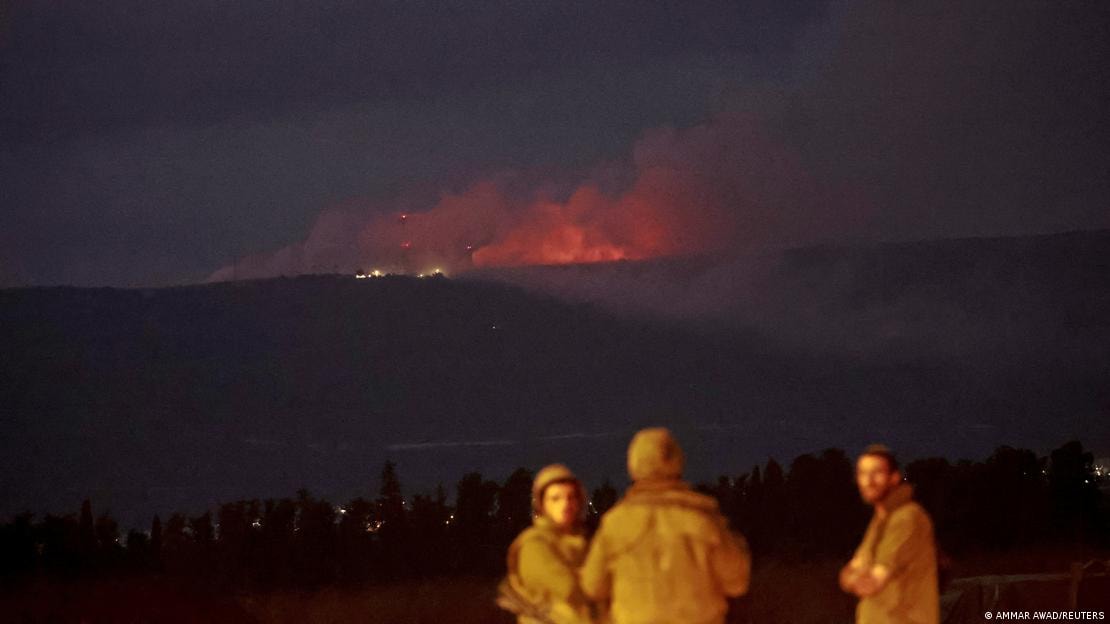
“With Iranian funding and backing, Hezbollah, Hamas, Palestinian Islamic Jihad and others created the United Fronts Doctrine a few years ago,” said Mohanad Hage Ali, a senior fellow at the Malcolm H. Kerr Institute at the Carnegie Middle East Center in Beirut. “The goal was to create a deterrent doctrine for Israel, assuming that whenever one side faced an existential threat, the others would step in.”
Brown said the scenario remains speculative for now. “Hamas’s actions were bold and tactically astonishingly successful, but so far most of the reverberations outside Gaza have been emotional or symbolic. The fighting has not spread, and the most likely explanation is that Hamas and Hezbollah see each other as allies, but each has its own calculations.”


